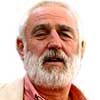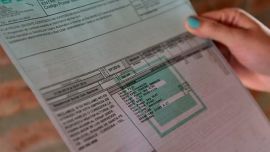Long-range wagers are placed on the future of Britain in or out of Europe. Yes, it’s “Brexit” again. The element has installed itself in all walks and talks. So the one first-class destination in the cold and wet English summer of 2017 was an escape into the cosy world of poetry. The reason? To interview the director of London’s National Poetry Library, poet and librarian Chris McCabe.
Brexit (Britain’s exit from the European Union) was there already. So, the inevitable question for McCabe, a youthful-looking 40 years old, was how could you use the writing of poetry and playwriting, to express thoughts on important public issues? Usually, there is little “political” poetry in England, though there is abundant “social” poetry.
“Our political issues are different to those of Africa, or Latin America. Now, however, you find issues of fracture everywhere, more than just social. The topic has articles every day in the media,” McCabe said thoughtfully.
Brexit was even present in an exhibition of wonderful artifacts at London’s Serpentine Gallery by artist Grayson Perry (1960). “Everything seems to explore national identity in the wake of the Brexit vote (on June 23 last year),” the artist wrote. “The World War I poets might be considered political… but the issues are far removed from that,” McCabe remarked.
“We had a Brexit theme at the library in August. It was a necessary event, on an issue that has changed the way of politics in Britain. We are looking at whether Britain leaves or stays in Europe. It is a dramatic political shift in our lives. The event was If/ Then:Brexit Poetics, a collectively generated and collaboratively written work comprising multiple voices and registers, created just prior to and following the EU referendum in June, 2016. If/Then: Brexit Poetics explored social imagery drawing on myth, philosophy and autobiography with written responses by selected poets, writers and artists alongside on-street vocal recordings in London, Glasgow and Athens. European poets came into the event as well.
“We have to generate these meetings to reach out to people and tell them of the importance of poetry to their lives. Because of the moment, If/ Then Brexit Poetics is obviously the first. It’s difficult to think of a poet who feels it will be a good thing for Britain to leave the European Union. It was a political experiment voiced in a poetic way.”
“There is an international event coming up in October that will mark the start of Poetry International, [the] festival that was started in 1967 by poet Ted [Edward James] Hughes (1930-1998). There were a great variety of well-known poets, such as Britons Stephen Spender (1909-1995) and W.H. Auden (1907-1973) and Nigerian Wole Soyinka (1934). So the Poetry Library had big events this year.”
Storied history. Started in 1953, the National Poetry Library was formally launched by the poet T(homas) S(tearns) Elliott (1888-1965), as part of a policy of rebuilding a nation after the war. The Poetry Library was one of several cultural creations. In 1988 the library was moved to the South Bank, on the river Thames where the Royal Festival Hall had been built as a symbol of recovery. The move took place with the blessings of the British Arts Council. Chris McCabe arrived in 2002, aged 24, as a library assistant, on the front desk. He was there with the post of “assistant” for five years. He prefers to be a Poet Librarian rather than “director,” a post he has held for the last 10 years. The library currently holds 200,000 volumes of poetry, in English.
“I was writing poetry when I came here, although not knowing much about what I wanted to do. I didn’t know what it meant to be a poet or where it was going to take me. So it was a good feeling to come to a place where I could continue to write my poetry, read as much as I could read and all this in a place that existed for this very reason: to promote poetry, to collect and engage in it. I was publishing my poetry in magazines, at first in some smaller magazines, but then I was published by Poetry Review, which was a step up, and in Manhattan Review, in the US. I am coming up to my fifth collection. So there are lots of poems of mine about — and more to come.
“I have one feeling about poetry when I work as a librarian, and another when I am writing or reading it. This is because all the things I have told you I really believe in, how important it is to be open and how important it is to be democratic, so that people who come here can make their choices and their decisions. I believe passionately in that,” McCabe assured.
“Yes, I do come from Liverpool [His scouse accent makes that clear]. Yes, The Beatles are part of our lives and our culture, for all of us who come from Liverpool. But thinking in terms of the Poetry Library, it is the Mersey Poets who matter. We are having a big celebration this year because it is 50 years ago — not 20 years ago today as in Sgt. Pepper’s Lonely Hearts Club Band [album by The Beatles] — but 50 since the Mersey Poets launched their anthology. In 1967, The Mersey Sound [anthology collection] brought poetry down from the shelf and onto the street, capturing the mood of the Sixties. A publishing phenomenon, it went on to become the bestselling poetry anthology of all time.
“The exhibition displays original manuscripts, ephemera, posters, audio and video material which retrace the emergence of Adrian Henri, Roger McGough and Brian Patten on the 1960s scene. Whether they wrote of young love, pop idols, atomic bombs, eccentric bus conductors or sci-fi super heroes, the Liverpool Poets were contemporary, urban and accessible. Their books and live readings helped make poetry a part of popular culture.”
It was generally claimed in the press and in public that the book sold a million copies. Some felt that was due in part to the name McCartney being present. The name was present, of course, but it was Mike McCartney, a photographer and poet and the brother of Paul, who was included in the anthology, rather than the Beatle himself. So there was a local joke among poets and on the music circuit at the time where mention of the name Paul prompted the quip “Paul who?” The answer was “Mike’s brother.”
“Our Mersey Sound exhibition started on August 28 and runs till September 24. There also was an exhibition of paintings by one of the original members of the [Mersey] Sound group, Adrian Henri (1931-2000), a man who came from the fine arts and was the founder of The Liverpool Scene poetry-rock group. And there was Roger McGough (1937), the performance poet, playwright and presenter of the BBC radio show Poetry Please. More recently McGough was president of the Poetry Society, in London.
“What we are saying is that this massive collection of 200,000 copies of contemporary poetry (mainly in English) is our main concern. This is our reason for being and everything we do comes from poetry. From the one-off reading to a symposium or events for children, for families… but you must keep in mind that poetry allows people to begin their own journey, in poetry, in life. The collection is growing every month. Our catalogue is online too.”
For more information on the UK National Poetry Library, visit www.poetrylibrary.org.uk
McCabe on generational shifts: ‘This is radical, this is a moment of change’
"We have all the poets of the post-colonial writing years, [from] more than half a century ago. Many interesting names entered English publishing then. There were men and women from former colonies in the Caribbean, Grace Nichols and Martin Carter (1927-1997) from Guyana, or Kenya’s Ngugi wa Thiong’o, and many others from West Africa. It was an injection of new writing into the old Metropolis.
“The new trends soaked up change, but poetry has a resistance to politics and the economy. Poets do not have much money. Hence, the form that poetry takes in politics is greatly different to other writing. And yet poetry is such a quick form that when there is a downturn in the economy, in social circumstances, poets are quick to react with language adjusted to affect the most affected in society.
“There was a lot of new work in the 1980s in the English language, especially in experimental forms often overlooked. It came in on the back of the modernism of the 1960s — one case is the big US poet Charles Olson (1910-1960), who asked if we weren’t going to a global meltdown. Poets in the UK were influenced by people like Olson, politically, experimentally. You can trawl through that work and find response in the 1980s to events such as the fall of the Berlin Wall, in November, 1989. The challenge for this poetry is to be noticed. It has to surface to have some effect.
“We are in a very interesting time now in English poetry: the last three Forward Prize winners are poets with a Caribbean background — two from Jamaica (one, Sarah Howe, of Chinese origin via Jamaica) and this year’s winner is originally Trinidadian, Vahni Capildeo. That is an interesting move that shows how we have moved from a post-colonial positioning of writers of colour. She is writing as someone who sees herself as somebody without a home or a country. She sees primarily language as her home. We are asked to meet these poets on their terms, rather than meeting them as poets who represent a territory or a country.
“Many of the new generation of poets are changing the landscape. When the National Poetry Library was set up in 1953, it was mainly white male poets who were being published, representing their time. Now you have a massive experience in poetry, with all the changing forms. I would begin to look at what digitals gave to all this.
“Poets are making careers and names without having ever gone to print. Poets who are meeting their readers on that level and are doing extremely well. And when their first book comes out, they will sell thousands of copies because they are known on the Internet. This is radical, this is a moment of change.”


























Comments